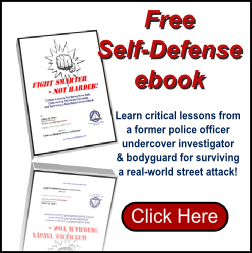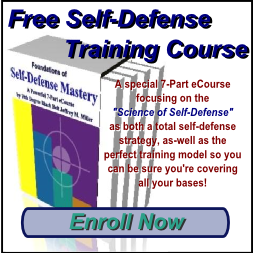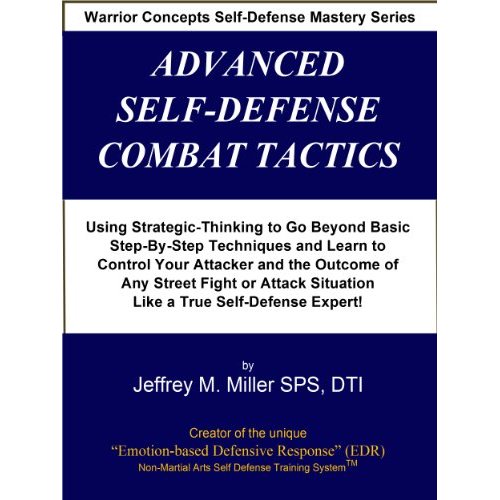|
"The Role of Your Emotions In Surviving A Street Self-Defense Attack"By Self-defense expert Jeffrey M. Miller Have you ever wondered about that? Outside of being reactions to the moment-to-moment occurrences as we move through our days, what role do our emotions play. For most people, it's kind of like your blood type. Aside from knowing what it is so we don't get the wrong type of blood if we need it, it and the emotions are just things that we "have" and have no control over. In reality, the emotions are actually tied to our body's own natural, human, defense mechanism. That's right. Your body is already hard-wired for self-defense by default. The problem is that, our sophisticated brains, social systems, and cultural, academic, and familial education has all but made us completely unaware that we have these abilities and functions. So, what is the role of our emotions, and how can they be used for self-defense? Good question. It's not within the scope of this article to go into all of the inner workings of your human brain, let's just begin with some very simple responses to stimuli from the world around us. You see, everything that we encounter, causes a feeling, or response at a base, primitive level. This happens without us being conscious of it, and also happens below the level of what we normally call our emotions. These base "feelings" or responses can be generally classified as feelings of:
Don't confuse these base level feelings with higher, more complex emotional states like:
They are much simpler and tied not to the higher brain functions, but actually come from your primitive "reptilian" brain - also known as the R-complex. That's the part of your brain that is primarily focused on self-preservation activities like eating, procreating, and not-dying. "Why," you may ask, "would I want to know any of this scientific gobbledeegoop? All I want to do is learn some moves to defend myself?" And I would answer, "you don't have to learn anything." Not if you just want to learn your "moves" and then hope that you'll be able to use them when you have to in a real street self-defense situation. Here's the thing. When you're training in your martial arts or self-defense class, you're probably pumped up, happy, having a good time. Yes? Looking at the base feelings I described a minute ago, that would put you "attraction" mode where you like what you're doing and want more of it. The activity - the training - is pleasurable and, while challenging, probably not very threatening or dangerous at all. Now, whether or not you've ever been in a real fight, or ever been attacked by an enraged individual out for blood, I'm sure you can imagine what that must be like. You can almost see his eyes and the intense look on his face. Add to that, the pressure and intention he's projecting and the smell of him - we can't forget the smell and feel of him as he invades your personal space. Are you still in "attraction" mode? I bet not. And you're not even in the real situation. You're just thinking about it and you're having an "aversion" response. How do you think you're going to feel actually being in the heat of the moment? Right. Very different from the way you do in class or your own personal practice sessions where there is no real danger. There are many stories about how "trained" and "expert" martial artists and self-defense practitioners have simply frozen under the pressure of a real attack because they were totally unprepared for the raw emotions that were overwhelmingly present at the time. Not a good place to be! However, if you understand the role and immense value that your emotions play in keeping you safe. And, if you learn what role they play in spearheading your body's own defense mechanisms, then you can also learn to tap into their power and use them as tools for your own defense. Having this knowledge also allows you to tailor and adapt your actual training methods to accommodate, acknowledge, and exploit your emotions as the valuable aids they are. Remember, any monkey can learn the moves, but a real expert - a real master - uses things that most people aren't even aware of, or don't know exist. So you have to study and use your emotions in your self-defense training? No. But then you don't "have" to breath either. But I'd highly suggest it! Are you a private individual, law enforcement or security professional, member of the military, or corporate manager looking for real-world self-defense training that works? Get the information you need to survive a real world self-defense situation. Get three self-defense report when you get my Complete Self-Defense Training Library Jeffrey Miller is an internationally recognized self-defense expert. He is the creator of the unique EDR: Non-Martial Arts Defensive Training System and teaches individuals, security professionals, companies, and organizations how to be more safe in Today's often unsafe world. For more information about corporate training programs and services, go to: WCI Consulting This article is copyright (C)2009 by Jeffrey M. Miller and Warrior Concepts International, Inc. It is free to use in it's original form, with no alterations or additions. If it to be used online, all links must be active and without the use of "no-follow" type coding which would prevent the reader from accessing the resources being referenced. For additional information about how Jeffrey Miller or Warrior Concepts can help you develop powerful self-protection skills and create a greater sense of power, confidence, and control, go to the Home page or call WCI at 570-988-2228
Best Selling Self-Defense Programs...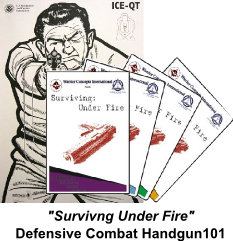 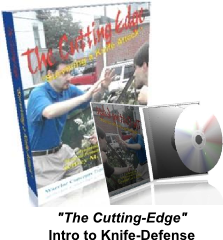 
Quick Links:
Ninja Camps Authentic Japanese Ninjutsu Ninja Camp Videos Training Opportunities Learn Ninjutsu Sponsor a Seminar w/Shidoshi Miller Self-Defense Training Consulting & Corporate Services Child Safety Visit Our Online Store! |
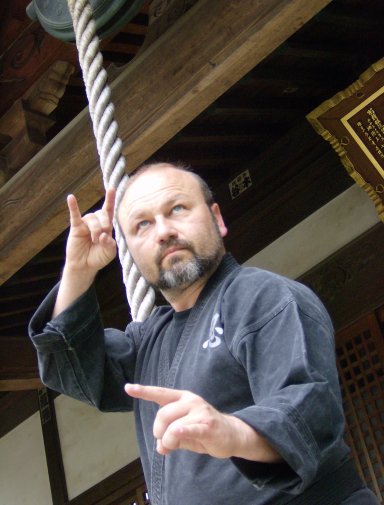 Most self-defense and martial arts classes avoid the emotions altogether. Others limit their focus to a gross oversimplification of emotional response during a self-defense situation. But, beyond being scared or angry, what role do the emotions play in handling a dangerous situation?
Most self-defense and martial arts classes avoid the emotions altogether. Others limit their focus to a gross oversimplification of emotional response during a self-defense situation. But, beyond being scared or angry, what role do the emotions play in handling a dangerous situation?
